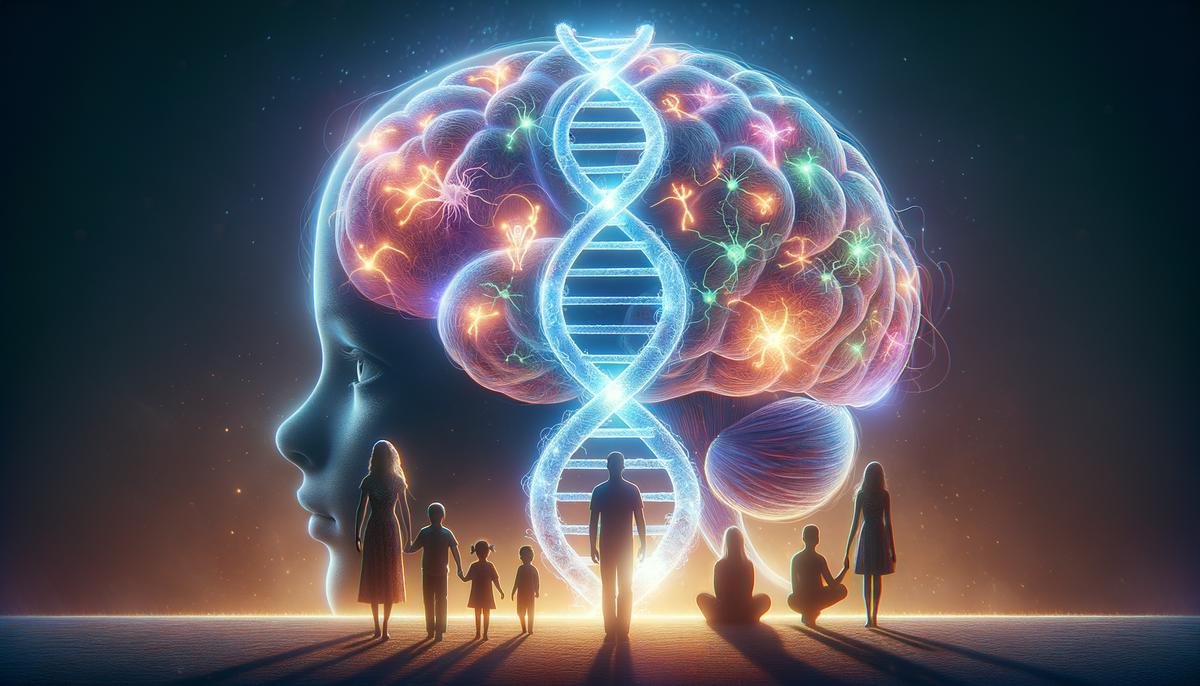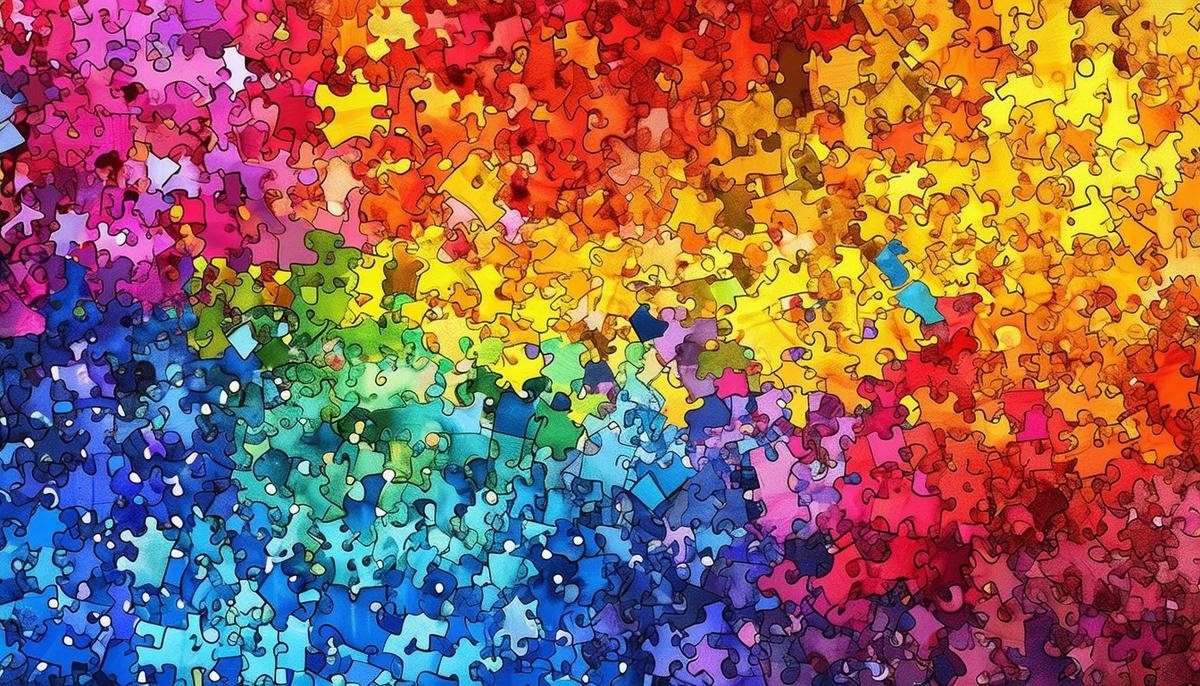
Autism Spectrum Disorder (ASD) is a neurodevelopmental condition that influences an individual’s behavior and ability to communicate and interact. Widely discussed and yet often misunderstood, autism encompasses a range of experiences, behaviors, and symptoms that can be complex to understand. This exploration attempts to shed light on the biological and psychosocial underpinnings of ASD, its diagnosis, contemporary interventions and treatments, as well as the lifestyle adaptations required for those living with this condition. With advancements in scientific research and understanding, we will specifically focus on the changes in perspective and approach towards Autism Spectrum Disorder in the year 2023.
Understanding Autism Spectrum Disorder (ASD)
Title: Understanding Autism Spectrum Disorder: Implications for Children and Families in 2023
Autism Spectrum Disorder (ASD) has always held a bit of mystery, uncertainty, and even fear for many. Now, as information has become more readily available and our understanding broadened, the conversation around autism has shifted dramatically in recent years – most notably for children and families navigating through the challenges and triumphs of ASD in 2023.
Essentially, Autism Spectrum Disorder is a complex developmental condition that involves persistent challenges in social interaction, accompanied by restricted and repetitive behaviors, interests, or activities. However, the implications are as diverse as the individuals themselves. Let’s delve a bit deeper into what ASD means for children and their families nowadays.
First and foremost, a child with ASD can certainly lead a fulfilling, happy life. After all, every child brings their kind of joy and experiences to a family. An ASD diagnosis can bring layers of uniqueness, with singular perspectives that can turn ordinary moments into extraordinary ones. Yet, it’s crucial to remember that these are individuals with unique talents, interests, and capabilities, far beyond the boundaries of their diagnosis.
Education is a crucial aspect to discuss when it comes to ASD in children. In 2023, the landscape for educational support has vastly improved, thanks to increased awareness and advocacy. Today, children with ASD have access to a range of educational programs designed specifically to cater to their needs, promote their strengths, and help them thrive in any educational setting.
But what about families navigating ASD? True, the adjustment can be challenging. There may be more doctor appointments, more planning, more learning, and yes, more patience required. Yet, these small sacrifices pale in comparison to the love and commitment that radiates in a family.
Resources for families have remarkably transformed over the years. Parents aren’t alone on this journey; now, there are numerous support groups, informational resources, and community initiatives available to help navigate the waters of ASD. Additionally, families can tap into workshops, webinars, training, and therapeutic services designed to ease the journey and support every member of the family.
It’s essential to remember that while ASD brings challenges, it also brings opportunities: opportunities for growth, understanding, resilience, and unbridled love. This journey with ASD, in 2023, is not one of isolation but one of community, strength, and above all, boundless hope.
Thus, unlike previous times when an ASD diagnosis was met with apprehension, the tide has certainly turned. Now, it’s just another facet of diversity to be acknowledged, embraced, and celebrated. Autism Spectrum Disorder doesn’t define a child; it’s just a part of their story. And with the compassion, resilience, and adaptability of families, the narrative is shifting from fear to understanding, acceptance, and love.
In closing, let’s continue to advocate, learn, and reach out. Together, we can create a world where every child, including those living with ASD, is valued, supported, and celebrated, regardless of the hurdles. Together, we create the environment we wish to see – one of understanding, acceptance, and inclusion.

Diagnosis and Evaluation Process
Unveiling the Landscape of ASD Diagnosis and Evaluation in 2023
Navigating the murky waters of Autism Spectrum Disorder (ASD) evaluation and diagnosis can feel overwhelming. But take heart; the new landscape of ASD in 2023 brings enhancements in medical science and a greater understanding of the unique dimensions of this neurodevelopmental condition, making it simpler for families to bridge the gap between detection and intervention.
Contemporary methods of ASD detection now focus on identifying signs at an early stage. Many pediatric practitioners are embracing the practice of routine surveillance and screening at regular health visits to ensure proactive ASD detection, often as early as 18 months. This method of early identification, in contrast to traditional reactive diagnosis, enables the provision of timely interventions, steering the child’s development in a favorable direction while also allowing families more time to adjust.
Meanwhile, an updated two-stage strategy for ASD diagnosis has become standard practice. Initially, general developmental screening tools are used to identify potential concerns. If ASD symptoms are detected, a more focused, comprehensive ASD-specific evaluation using advanced tools like the Autism Diagnostic Observation Schedule (ADOS) or the Autism Diagnostic Interview-Revised (ADI-R) are employed.
Moreover, this process is no longer a ‘one and done’ affair. Noticing the fluid nature of ASD, health professionals now incorporate regular follow-ups to monitor and evaluate progress. These reviews aid in adjusting therapies and interventions as the child grows, aligning with their evolving abilities and needs.
Significantly, the tools used for ASD diagnosis have also undergone profound changes. More robust and inclusive diagnostic tools, like the forthcoming DSM-6, are anticipated to feature a wider criterion for ASD, offering a more detailed and nuanced understanding of this complex disorder. This will not only expedite accurate diagnosis, but also minimize misdiagnoses, ensuring everyone across the spectrum rightfully gets the support they need.
In 2023, the diagnosis process is holistic and considers the myriad effects of ASD on a child’s life. Instead of looking at ASD in isolation, clinicians account for associated conditions such as language impairment or intellectual disability, offering a comprehensive and individualized treatment plan. This integrated perspective facilitates efficient interventions, enhancing the overall quality of life for those living with ASD.
Importantly, the stigma that once shrouded ASD diagnosis is steadily eroding. New endeavors are being made to create a more empathetic and nurturing environment during the evaluation process. The use of friendly, less intimidating language, embracing family involvement, and prioritizing the child’s comfort create a positive experience that lessens worry and promotes cooperation.
Ultimately, the diagnosis and evaluation process of ASD in 2023 is underscored by grand strides in understanding, acceptance, and technological advancements. The merge of these factors has indeed painted a brighter future for individuals with ASD, building stronger paths towards realization and cherishing their unique identities.

Interventions and Treatments
Effective Interventions and Treatments for ASD in 2023
Embracing the challenges and opportunities that come with a diagnosis of Autism Spectrum Disorder (ASD) opens up a world of potential interventions and treatments that can aid in the journey towards improved communication, social skills, and overall daily living. In 2023, we find our toolboxes bursting with innovative, evidence-based approaches designed to support individuals with ASD and their families.
Perhaps one of the most remarkable advancements is the adaptation and application of Applied Behavior Analysis (ABA) therapy for individuals with ASD. Rooted in understanding human behavior, ABA therapy utilizes goal-oriented procedures to help improve socially significant behaviors, thereby enhancing a person’s quality of life. This therapeutic approach has been particularly useful in teaching individuals with ASD essential skills such as interpersonal communication, reading, self-care, and academic competence.
Occupational Therapy (OT) has emerged as another pillar in ASD treatment. Occupational therapists guide individuals with ASD in better managing their daily activities, thereby improving their capacity to participate in day-to-day life. Tailored to the unique needs and abilities of each individual, this type of treatment can make considerable strides in gaining independence and an improved state of well-being.
Speech and Language Therapy has been a proven front-runner in strengthening communication skills among individuals with ASD. Early intervention with this therapy initiates the unpacking of complex language and conversational skills, helping to fan-out the range of their social interactions.
Furthermore, advancements in technology have given rise to numerous digital tools and apps specifically designed to aid ASD therapy. These tools are helping individuals with ASD better communicate their needs and feelings, thus enabling them to actively participate and engage in family, school, and community activities.
There has also been a growing acceptance and implementation of alternative therapies such as music, art, and animal-assisted therapies for ASD treatment. These therapies can often provide a calming and creative outlet for expression, leading to lower levels of stress and anxiety.
Parent-mediated interventions have also gained milestone recognition in recent times. Parents are not just passive receivers of information but active participants in the therapy process. Research has consistently shown that when parents are involved, they can help reinforce the skills learned during therapy, increasing the potential for improvements in behavior and communication.
Medication, while not a cure for ASD, can be useful in managing some of the challenging symptoms associated with the disorder such as self-injurious behavior, hyperactivity, or severe tantrums. The use of medications is usually part of a comprehensive treatment plan that includes behavioral or other therapies.
Lastly, it’s paramount to remember that no single intervention or treatment is a one-size-fits-all. The uniqueness of ASD warrants a tailored approach that caters to the individual’s specific needs and abilities. Wrapping our arms around ASD may appear daunting, but with continuous advancements and breakthroughs, there’s ample hope for optimism, empowerment, and a pathway to unlocking limitless potential.

Parenting and Lifestyle Adaptations
In 2023, all pointers indicate that being proactive and strategic in our approach can make a world of difference when it comes to supporting children with Autism Spectrum Disorder (ASD). As we continue to advocate for a world that fully accepts and embraces individuals with ASD, it’s paramount that we share knowledge and practices that work. So, let’s dive in into some of these fresh strategies that allow children with ASD to thrive.
Visual Learning Techniques hold more weight than you might think. Children with ASD often exhibit strong visual learning skills and can benefit immensely from visual aids. These could be visual schedules (charts with symbols representing daily activities) or social stories (visual guides illustrating social scenarios). Household chores, school activities, or social interactions become significantly more straightforward and less intimidating when backed by visual prompts. Designing and integrating these aids into the daily routine of a child with ASD in 2023 is a fantastic strategy to enhance understanding and independence.
Those words, Social Skill Training, have been thrown around a lot, and there’s a good reason for this. Encouraging children with ASD to develop their social skills helps them interact more effectively with the world around them. This training can be as straightforward as role playing social scenarios, practicing making eye contact, or teaching non-verbal cues. Remember, every small step makes a difference in the grand scheme of things.
It’s 2023, and there’s no denying the power of Technology-Enhanced Learning. Technology has infiltrated every aspect of our lives, and when harnessed appropriately, it can benefit children with ASD. Apps, video modeling (where children learn skills by watching someone else perform them on video), and virtual reality experiences are now being recognized for their potential to provide effective therapeutic support. They provide a safe and controlled environment where children with ASD can practice and learn at their own pace.
You might have heard of Sensory Integration Therapy, another tremendously effective tool. This therapy aims to help children with ASD, who often struggle with sensory processing, by using activities that challenge one or more senses. Play-based activities like swinging, climbing, or playing in a sandbox can help fine-tune sensory information processing and help children better respond to sensory stimuli in their everyday environment.
Diet Management, though often overlooked, plays a pivotal role. Children with ASD sometimes experience gastrointestinal issues or food sensitivities. A diet suited to their unique needs can contribute to overall wellbeing, reducing discomfort and possibly even easing some ASD symptoms. A professional nutritionist experienced in handling special dietary needs associated with ASD can significantly guide this process.
Let’s not forget the significance of Family Involvement and Training. Parents and siblings play a monumental role in a child’s life. Attending relevant workshops, joining a support group, or partaking in training sessions can equip families with necessary information and understandings to foster an environment conducive to the growth and development of their child with ASD.
The journey may seem daunting, but remolding our lifestyle and encompassing effective strategies for the benefit of children with ASD holds immeasurable rewards. It’s all about embarking on this journey with patience, resilience, and above all, love. Every child deserves love, acceptance, and the chance to live life to the fullest. Let’s make 2023 the year we amplify their voices and pave the path for their success in every way we can.

With Autism Spectrum Disorder affecting many individuals and their families worldwide; understanding, acceptance and the provision of effective and individualized support systems are of utmost importance. Positive progress has been made in the way we understand, diagnose and treat ASD in 2023. These forward strides not only enhance the quality of life for those living with ASD but provide invaluable support to their families. Moreover, nurturing a societal environment of inclusivity and recognition of the diverse manifestations of autism creates a more empathetic, understanding world. Let’s carry this spirit of learning forward, continuing to educate ourselves and promote compassionate perspectives towards Autism Spectrum Disorder and those it affects.




